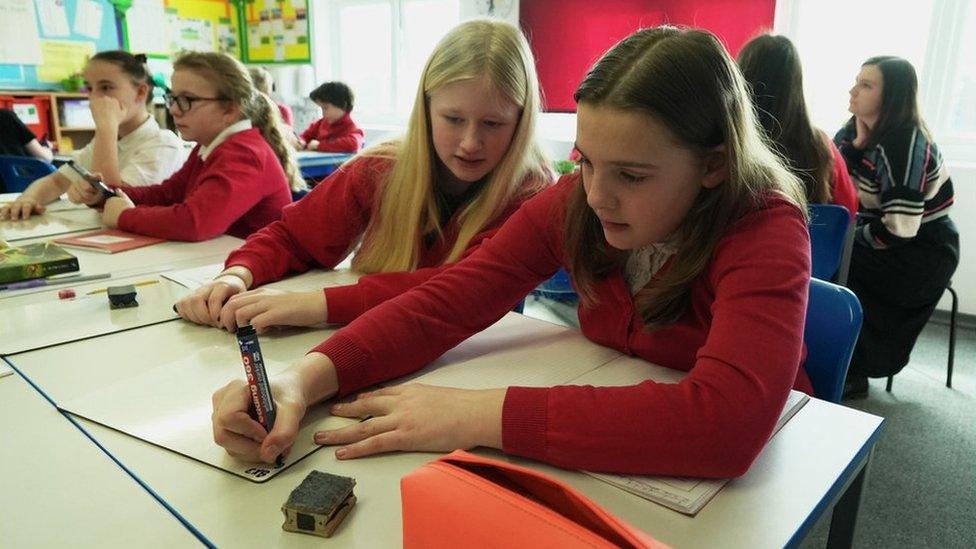Covid: Tutoring cash to go straight to English schools in shake-up
- Published
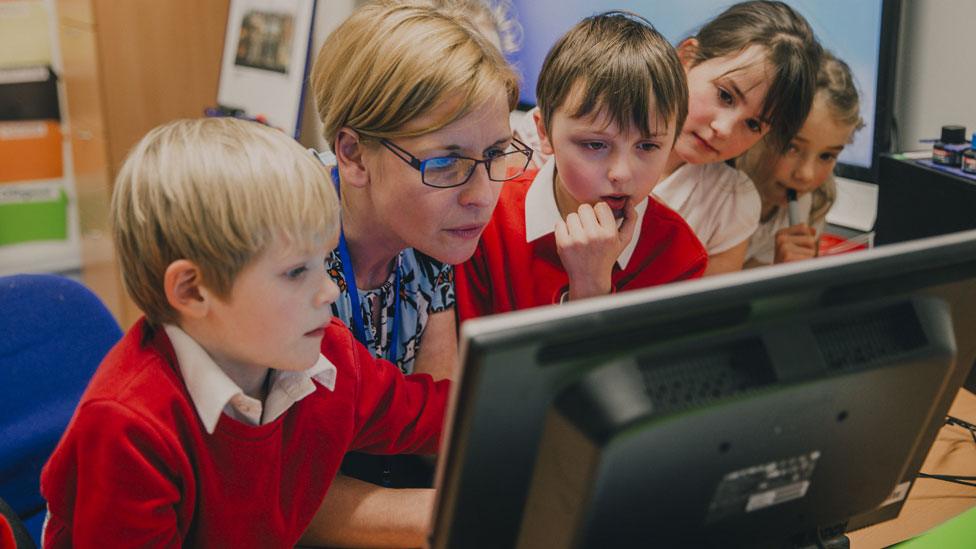
Cash to arrange catch-up tutoring for pupils after Covid will go directly to schools in England next year, says the government, in a move that axes its contract with supplier Randstad.
It follows calls to pull the contract, with many schools finding it easier to source their own tutoring.
Education Secretary Nadhim Zahawi said the move was "building on the success of school-led tutoring".
Randstad said school-led tuition was "proving the most attractive" option.
MPs said this month that the Randstad contract should be scrapped if performance did not improve.
The National Tutoring Programme (NTP), introduced in 2020, is the government's scheme to help students catch up on the learning they lost in the pandemic.
Schools choose the pupils they think will benefit most from additional tuition, which is 15 hours in total,, external and decide whether children are tutored alone or in group sessions.
Dutch HR company Randstad was given the contract for running it.
It was meant to match tutoring companies with schools - asking firms to register, and schools to bid for tutors using an online portal.
However, take-up has been poor, with many tutoring companies finding it difficult to get through the approvals processes.

'We know our children best'
By Nathan Standley
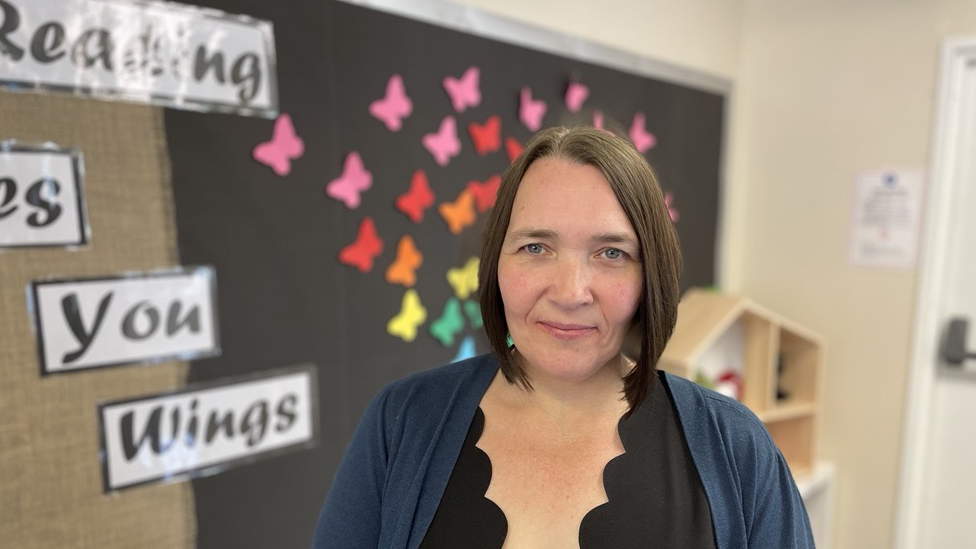
Cori Bateman has been concerned about the bureaucracy involved in accessing government funding for catch-up support
In Luton, the three primary schools in the Pioneer Learning Trust struggled to get the support they needed from the National Tutoring Programme.
Cori Bateman, the trust's chief executive, says long-winded bureaucratic processes are entrenched in the current system, and there aren't enough university-educated mentors available to work short-term, temporary contracts.
"They're like unicorns, they don't exist," she says, adding that her trust has had to share just one mentor among its 1,300 pupils.
She has seen disadvantaged children fall further behind as a result.
In Sheffield, Nicola Shipman, chief executive of Steel City Schools Partnership, which runs nine academies, says she's looking forward to schools having more power to address the "hidden challenges" of getting pupils caught up after Covid.
"Some of our children have only just had their first ever school assembly," she says.
"Our preference would've been to just give us the money, as we know our children best."
She is happy about the move to the school-led approach for tutoring, but thinks time and money have been wasted.

Mr Zahawi recently diverted money away from its contract with Randstad to instead allow schools to bid directly for a subsidy for tutoring.
The Department for Education (DfE) has now said that £349m of tutoring funding for the 2022-23 academic year will go straight to schools to "simplify the system and give schools the freedom to decide how best to provide tutoring for their children".
Mr Zahawi said the overhaul of the NTP was "building on the success of school-led tutoring so far - with evidence as our watchword".
The DfE said it would launch a procurement process in April for a potential new supplier, which would be responsible for quality assurance, recruitment, deploying mentors and offering training.
Labour's shadow education secretary Bridget Phillipson said the NTP had "failed our children and wasted millions of pounds of public money".
Randstad said this academic year had shown school-led tuition was "proving the most attractive to schools".
Karen Guthrie, director of the NTP at the company, said it had "always supported the position that schools know best", and welcomed "the fact the department has recognised this".
"We also support a fair and transparent procurement process, and appreciate that a material change in programme scope requires a new procurement exercise as is right and proper in the protection of public funds," she said.
"Randstad will look to continue its relationship with the DfE if we believe it is in the best interest of the programme and all those benefiting from it."
Research suggests teenagers' reading skills have fallen further this year.
MPs on the Education Select Committee have said the government's efforts to help children catch up amounted to "a spaghetti junction of funding".
The committee's report this month said the NTP had only reached 52,000 courses so far - just 10% of this year's target for tutoring courses - and suggested scrapping the contract if the numbers did not improve.
Robert Halfon, the committee's Conservative chairman, told BBC Radio 4's World at One programme he had been "really worried about the performance of Randstad".
"I think this is the right decision, because what we should do is give schools the autonomy," he said.
"They know best how to spend their money on the catch-up."
Geoff Barton, general secretary of the Association of School and College Leaders, welcomed the news that all funding would go directly to schools.
"The way it has been structured through various funding streams and providers is overly and unnecessarily complicated for something that should really be very simple," he said.
"There is good evidence that small group tutoring helps students to progress, and it makes perfect sense for the entirety of the funding to go to schools, so that they can decide how this would best be delivered."

IS THIS WHY YOU AREN'T GETTING THE JOB?: The new world of computer-automated recruitment
VIOLENCE, INTIMIDATION AND FEAR: The 'county lines' drug networks infiltrating rural areas

- Published30 March 2022
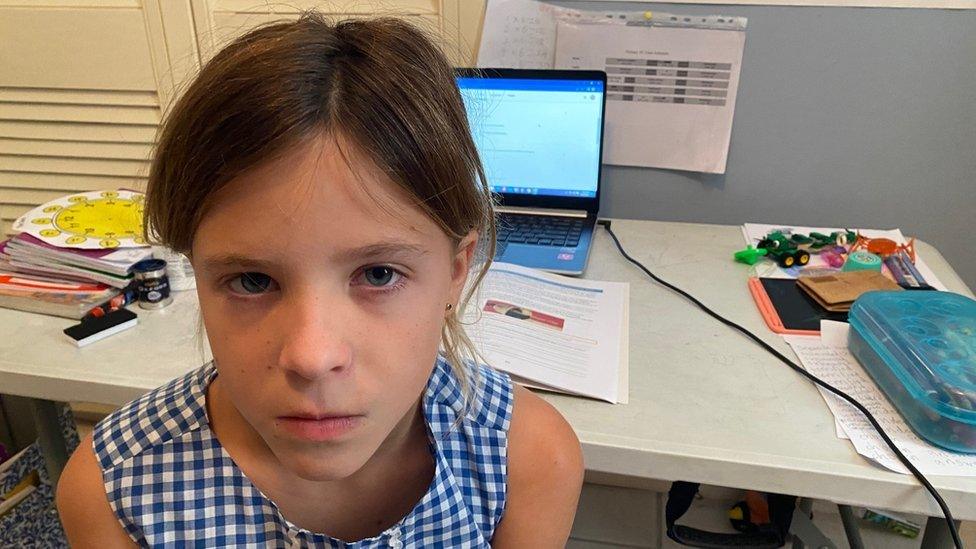
- Published29 March 2022

- Published28 March 2022
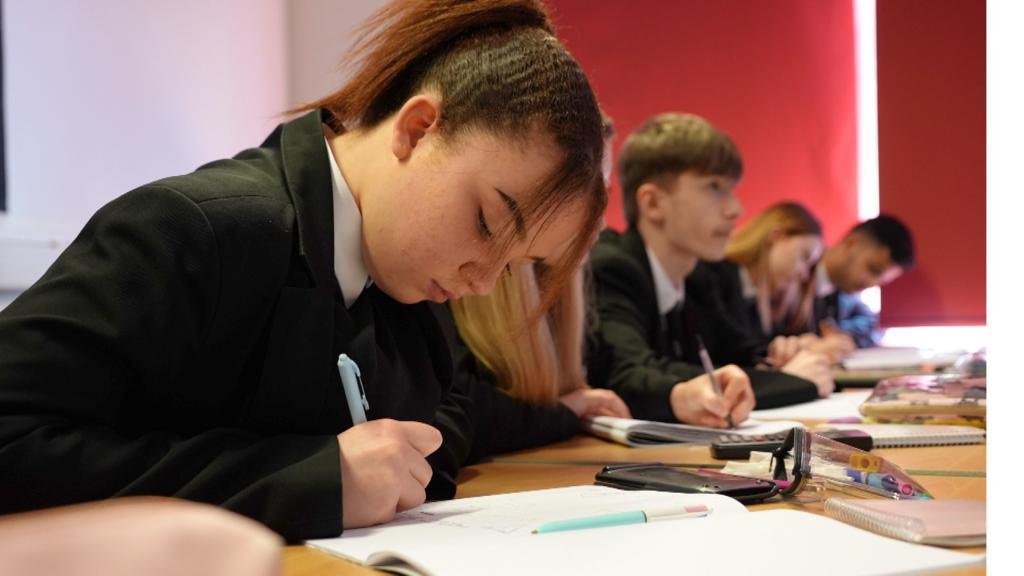
- Published11 March 2022
